Capital:
Stone Town
Currency
Tanzanian Shilling
Best time to visit:
A trip to Tanzania must be organized between July and March. During the rainy season (April to June), almost all roads are impassable and many hotels close.
In a word:
Hakuna matata (no worries)
Vaccines
Malaria is widespread throughout Tanzania: antimalarial prophylaxis is required. In Zanzibar the risk is much lower.
Warnings:
- Beware of the tides phenomenon because at any moment the sea can swell making you find yourself offshore without even realizing it.
- For those traveling with children: children under the age of 7 are not allowed in all the parks and, in any case, never lose sight of your children in the tented camps.
At the table:
The menu often includes excellent beef or chicken (pay attention to the spices), served with rice or fried potatoes. Nyama choma (roast meat) is also found in many places. Fish and seafood are exquisite on the coast and on the islands of Zanzibar and Pomba. Near the lakes, try tilapia, freshwater fish with tender flesh.
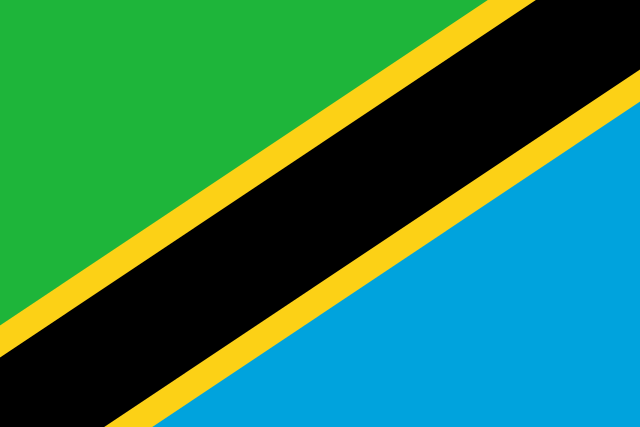
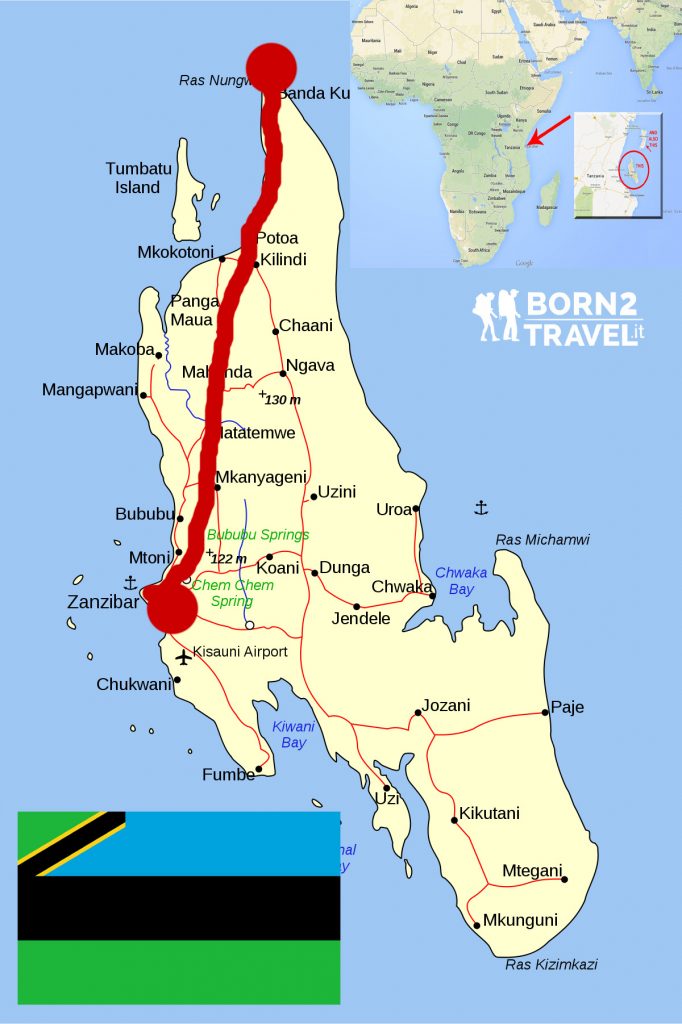
Essential experiences:
Get lost in the alleys of Stone Town; Admire the tides in Nungwi; Swim with turtles
Zanzibar is still a splendid paradise for travelers, we would recommend it to everyone, from couples for a romantic getaway, to families with children for activities that can be enjoyed on the beach, for those with enfants for the tides that turn the shoreline into a small swimming pool (in particular time slots of the day), to those who love luxurious tourism thanks to the wonderful resorts, to those seeking a volunteer experience with the less fortunate of the local villages or with the fauna (turtles in particular) up to those who love the adventure thanks to the excursions that can be lived in the hinterland or by boat or by snorkelling and scuba diving.
We decided to live the first part of this adventure staying in a small hotel (3 rooms on the beach) managed by a local and the second part in a magnificent resort on the Ocean, just to enjoy 100% of all that this beautiful island has to offer.
Here is our story!
We land in the capital Stone Town ... it's 35 ° ... it's very hot ...
Ours is the only flight and, at the arrivals, it's a complete chaos... I am almost amazed when I see our two backpacks emerge!
The transfer from the small airport to our little hotel lasts about an hour and a half and what we see from the windows surprises us ... tin roofs shacks, kiosks that sell everything a little, sometimes a mosque, barefoot children and half naked they play ball in a dusty clearing, Indian rows of people along the banks of the only half-paved road ...
At last we reach Nungwi, the northernmost part of the island and the welcoming Dodoki Beach! Open only a year but very well organized thanks to the passion of Makame and his great staff!
We are dead tired and we have dinner directly in the restaurant of the small guest house with a great one dorado freshly caught, barefoot, while Nora builds the first sand castles ... she couldn't wait!
Silence broken only by the sound of the waves crashing on the shoreline before retreating at low tide ...
With the excuse of buying some water and snacks, we venture into the picturesque Nungwi with our friend Muba.
It seems to be immediately catapulted into another world: women dressed in colorful bui-bui (which cover them from head to toe) chat among themselves sitting on the ground while cleaning beans or fish caught by men; the elderly play bao (a game with a chessboard), barefoot children play with a bike wheel chasing each other ...
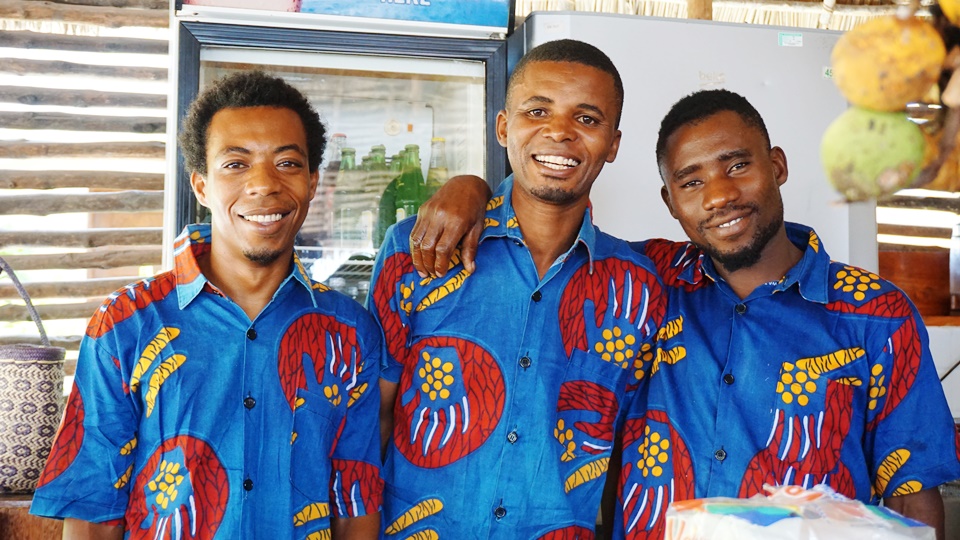
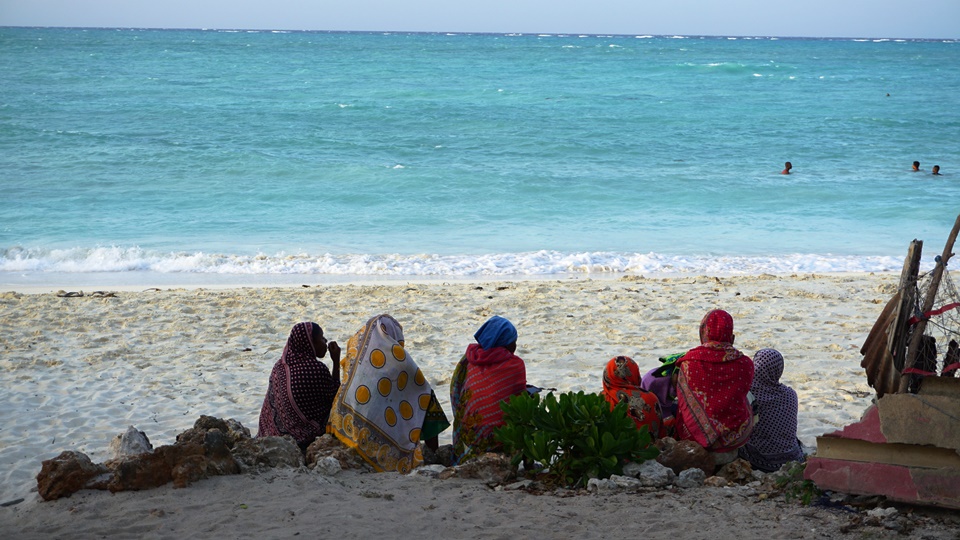
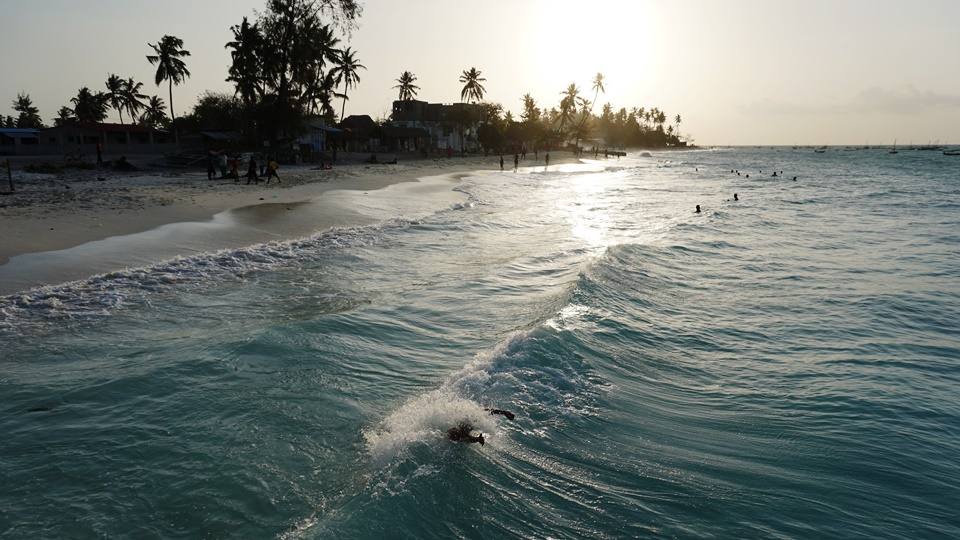
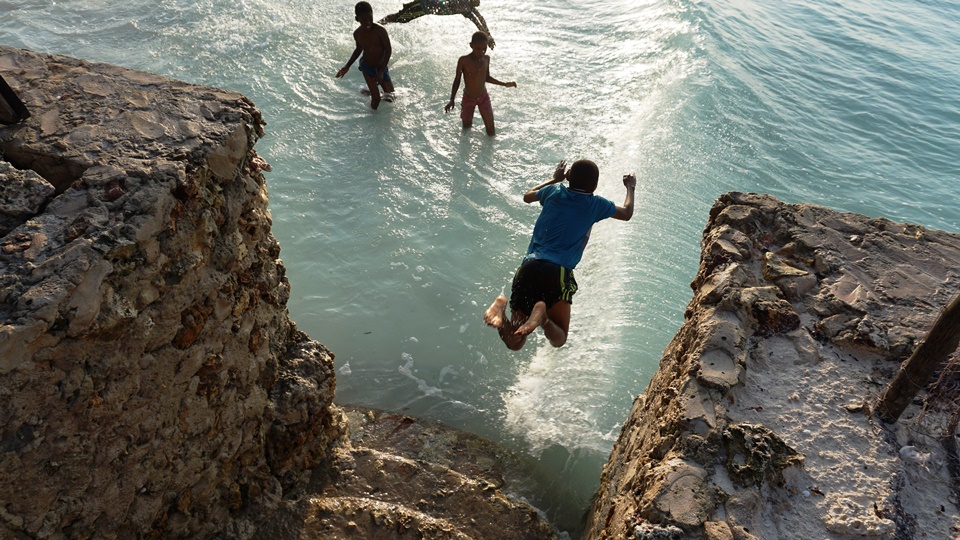
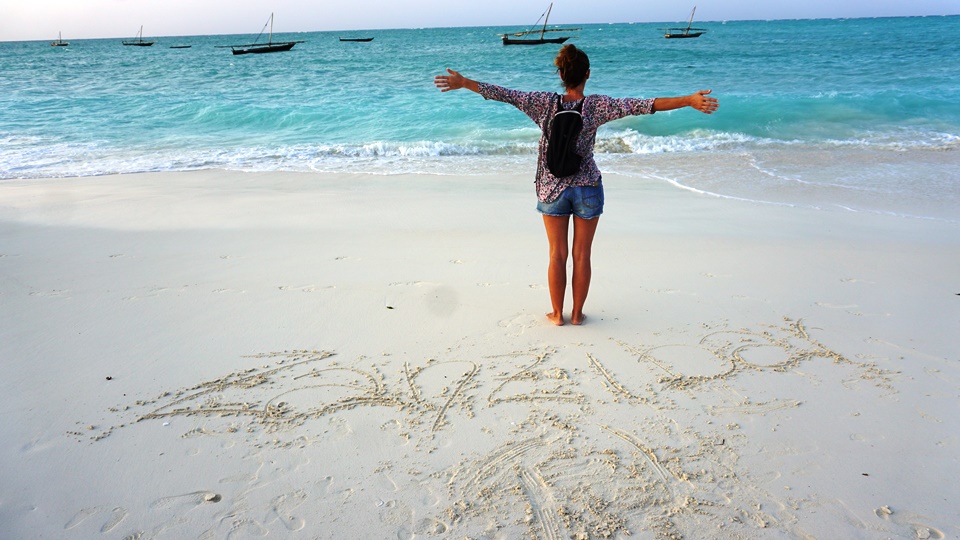
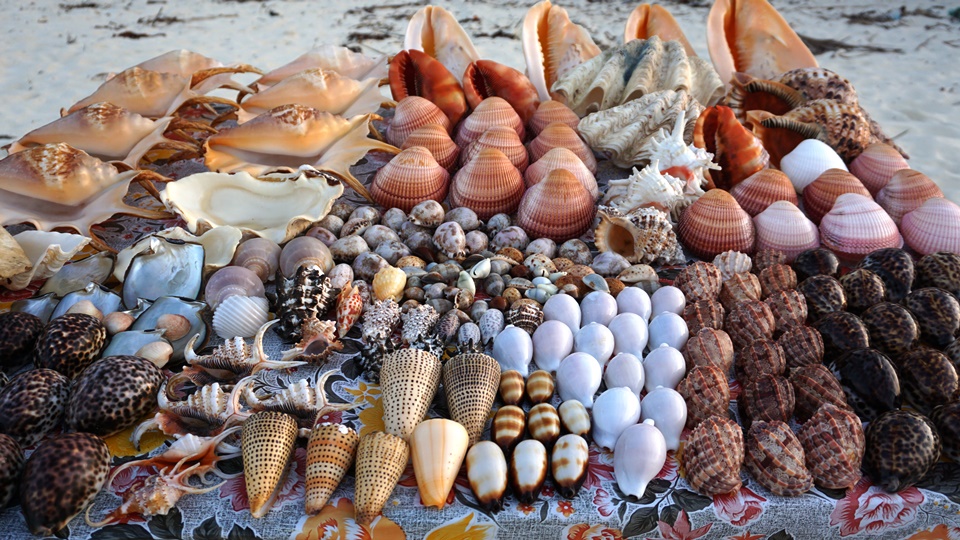
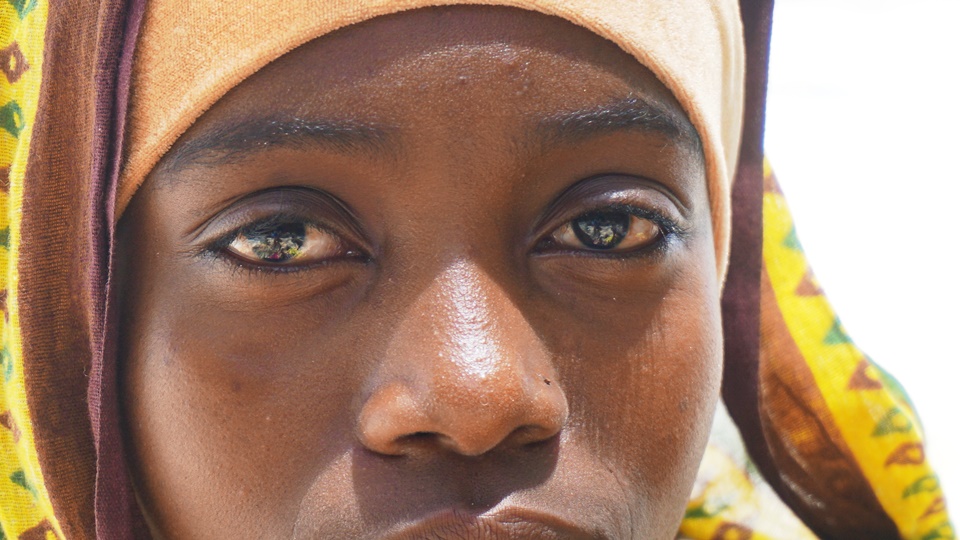
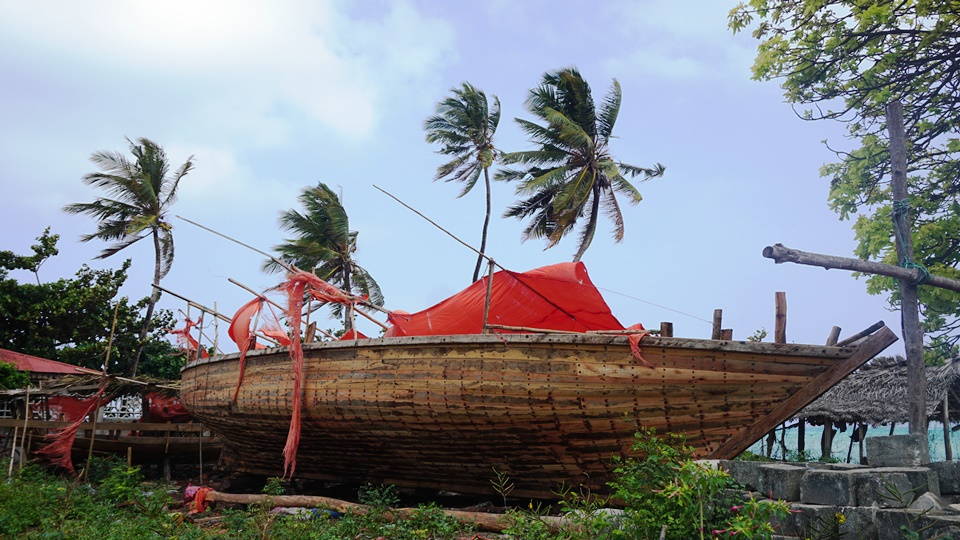
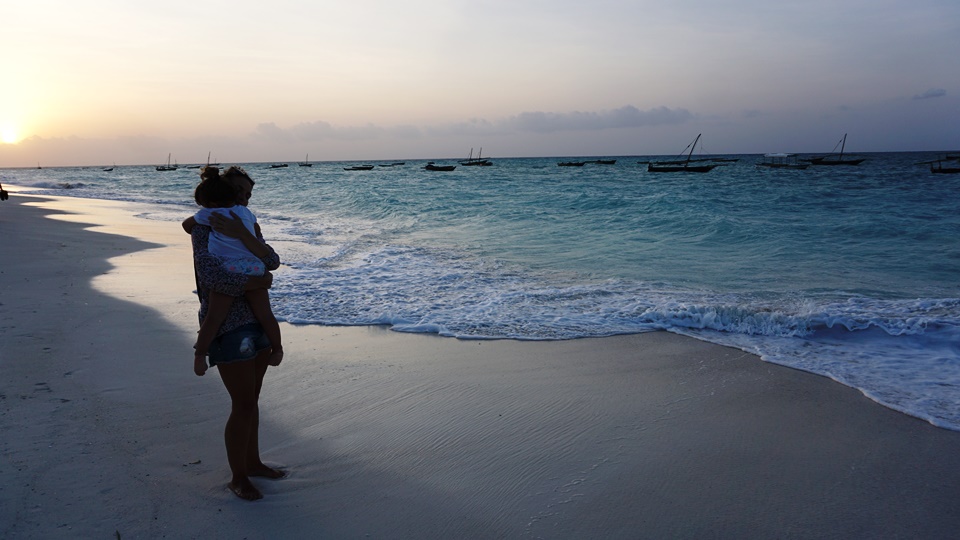
The effect of the tides is truly incredible.
See all those women gathering algae, shellfish, watching satisfied fishermen coming out of the water with huge polyps, children cleaning fishing tools and playing among the sketches ... all with a breathtaking backdrop ...
The ocean has irreproducible colors, magical nuances ... and it is astonishing to see Nora marvelling at the helmets of bananas, freshly caught fish hanging outside our room ... for me, this is a dream, bring my baby to Africa, to the land I love the most.
Watching her play with the other children, looking for each other, running, laughing, talking only the language of smiles and caresses ... if only we could bring her to the world of grown-ups this trust and joy in meeting the next ...
Mnarani Aquarium. Here many volunteers are working to safeguard the lives of wounded sea turtles that would otherwise die.
Even today, many inhabitants of the island eat turtle meat but, most of the fishermen, when they find some wound on the shoreline or catch some with nets, bring it here!
They are not given money in return but, with part of the visitors' offers, useful things are bought in the village!
The center has been open for 23 years and, every year, turtles ready for a new life are freed in the ocean!
We have fed the larger ones, with their feet immersed in the pond while these wonderful creatures came and nibbled at you tenderly ... "
The fish market.
A group of goats in the shade of a large tree rests peacefully, many women sitting on the ground fill large yellow water cans, an old man with a face carved by time and a Muslim hat on his head sells used t-shirts, all piled on the ground, children are the end of the line in front of the door of a small house when this white girl goes by who greets everyone ... a few seconds later, they are all together playing and chasing each other without barriers ...
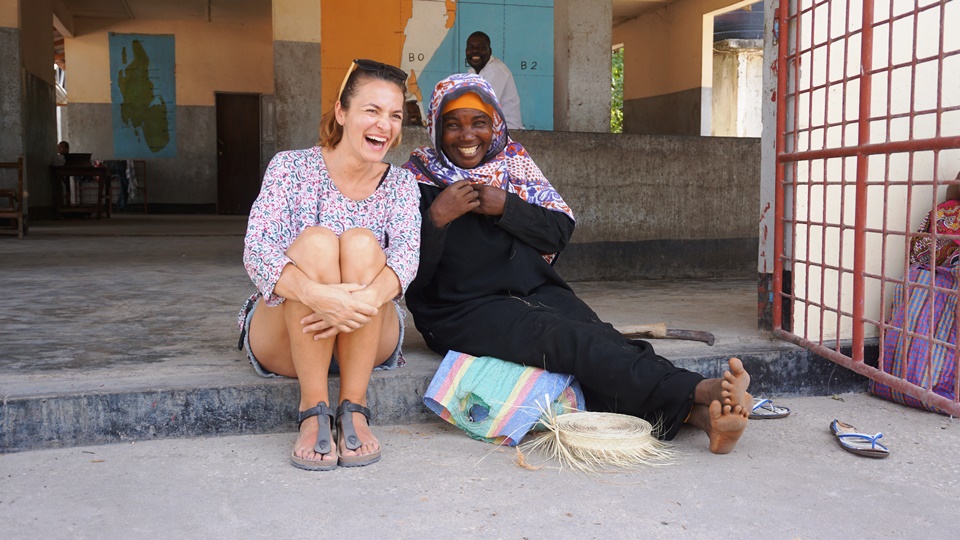
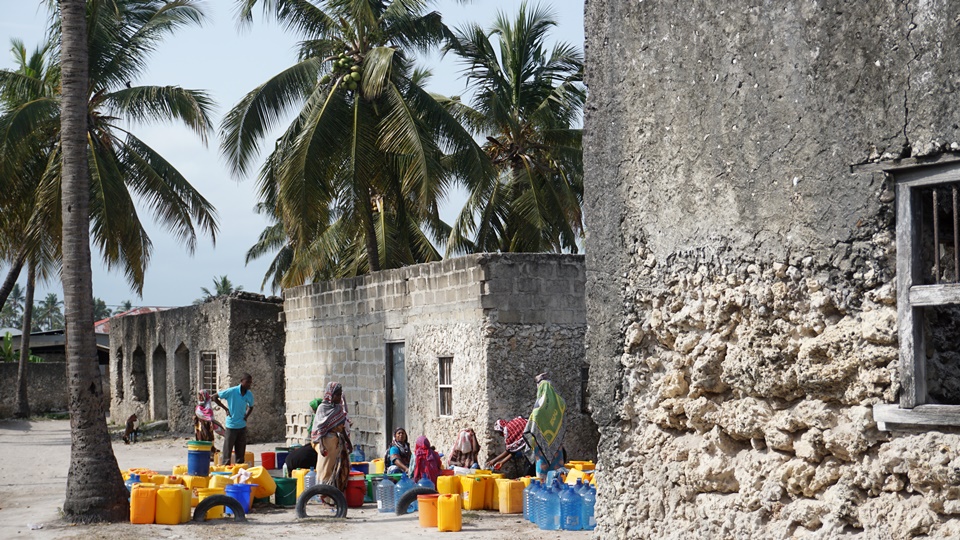
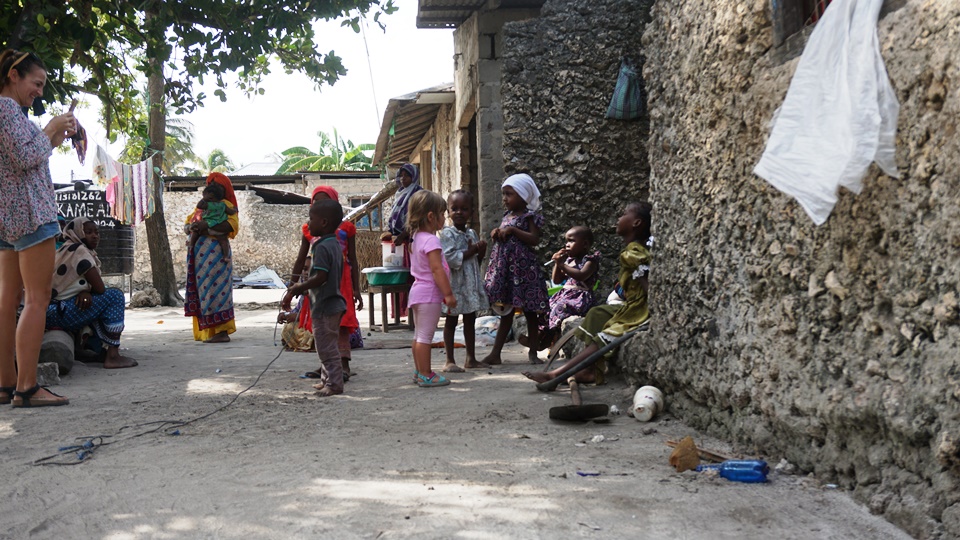
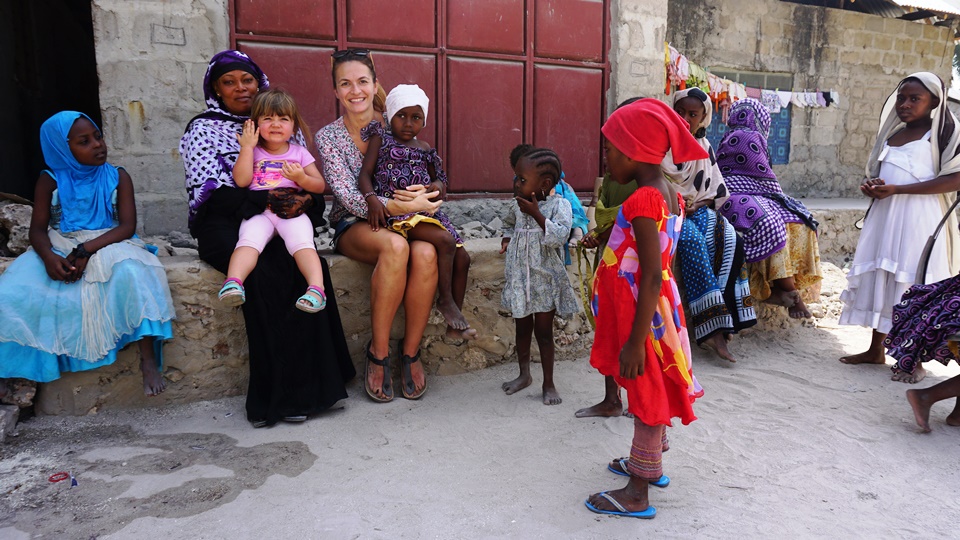
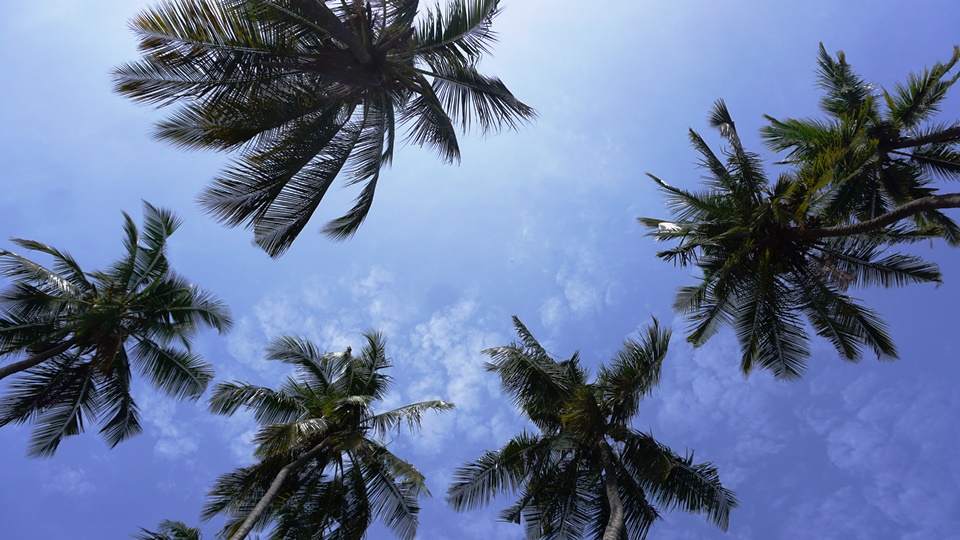
In this large village nestled among palm groves at the northern end of Zanzibar, most of the dhows (ancient Arab sailing vessel) of the island are built!
Nungwi is one of the main tourist destinations, despite the almost total disappearance of the beach due to the strong tides.
It is also the place where tradition and modernity collide most clearly.
Sitting in the shade facing the sea, the fishermen repair the nets while the morning catch is put to dry on wooden racks and, under the skillful blows of the ax of the carpenters who build the dhows with a centuries-old profession, the boards, roughly cut, slowly return to new life.
We change area, but not too much.
Paradise!
Nungwi Dreams is a pearl, a diamond set in the crown of Nungwi already rich of course!
A super comfortable room with many multi-colored petals on the bed gives us a warm welcome while we sip the freshly prepared tropical fruit cocktail!
There is a pool near the ocean that looks like a small mirror before a wonderful picture!
It is wonderful to soak in the water, silently looking out to admire the Indian Ocean!
After a brief visit to the "Kilosa's Conservation" animal recovery center, where we played with monkeys, turtles, chameleons and saw crocodiles, pythons, lemurs, all saved on different occasions ... with Muba, on an old off-road vehicle, we reach the island capital!
Stone Town is crossed by a magical tangle of cobbled streets where you can easily get lost ... very easily, trust us ... we will have asked 50 people before finding the right path for our little hotel!
In this fantastic labyrinth of alleys, a world heritage of UNESCO, you will find, at every turn, something suggestive ... a crowded school of children reciting verses from the Koran, a Catholic kindergarten with only one student, a beautiful old colonial-style building with elegant protruding verandas, a coffee seller with his long-spouted pitchers placed on charcoal that attracts people by rattling some change ...
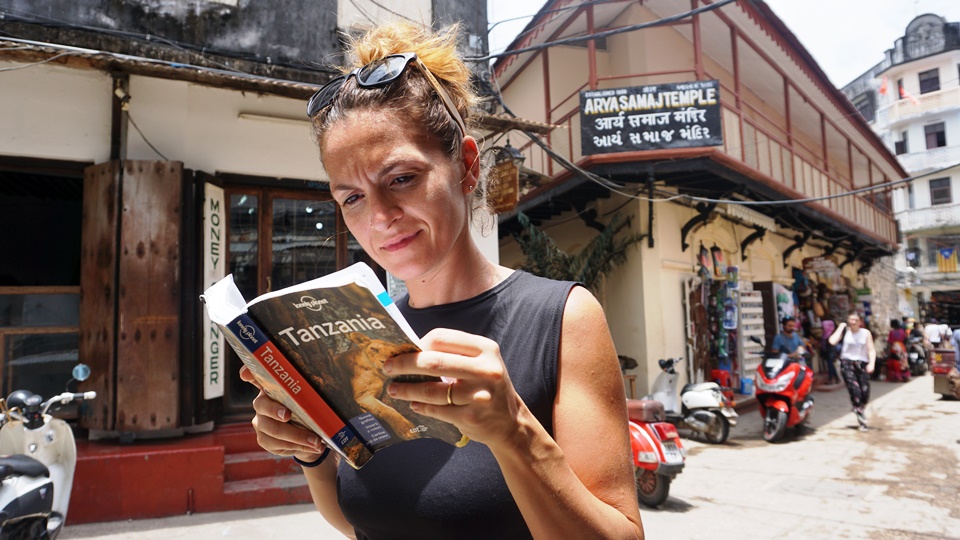
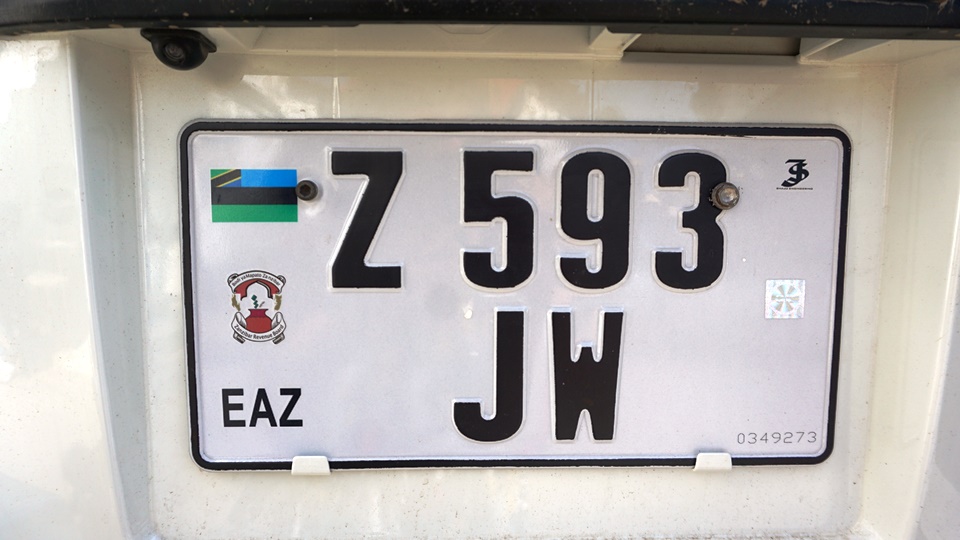
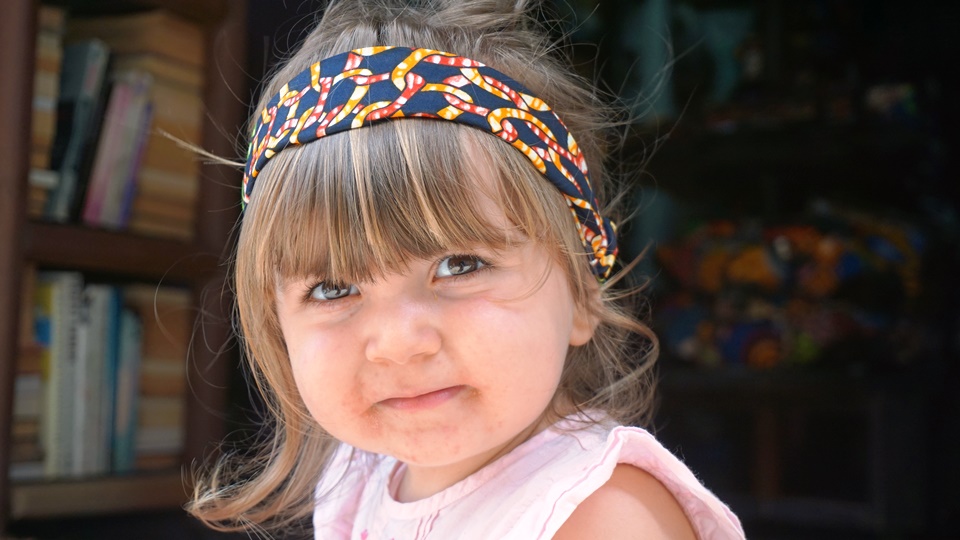
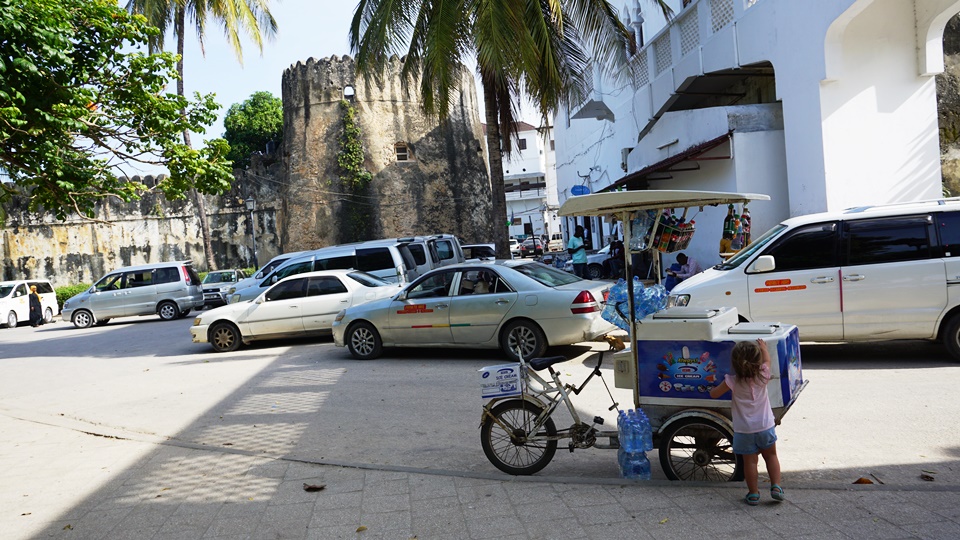
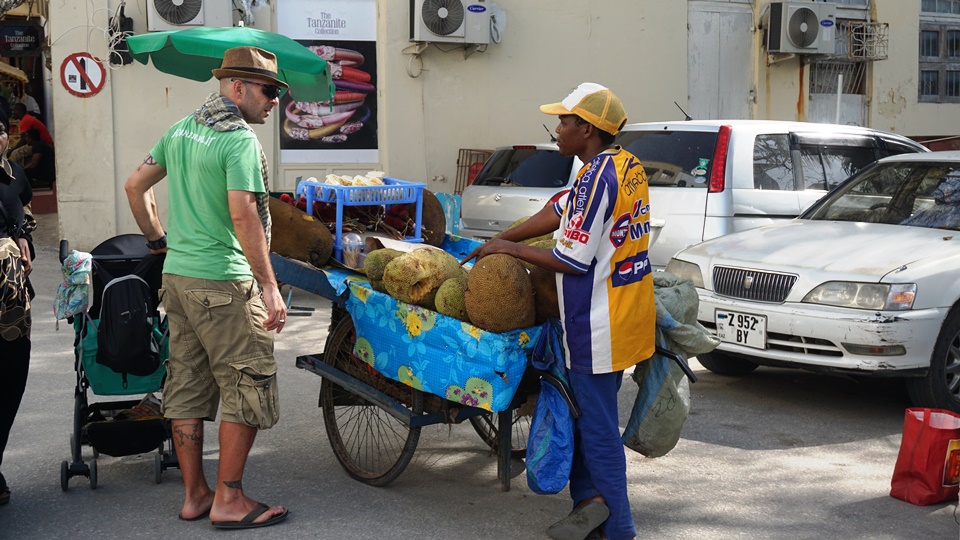
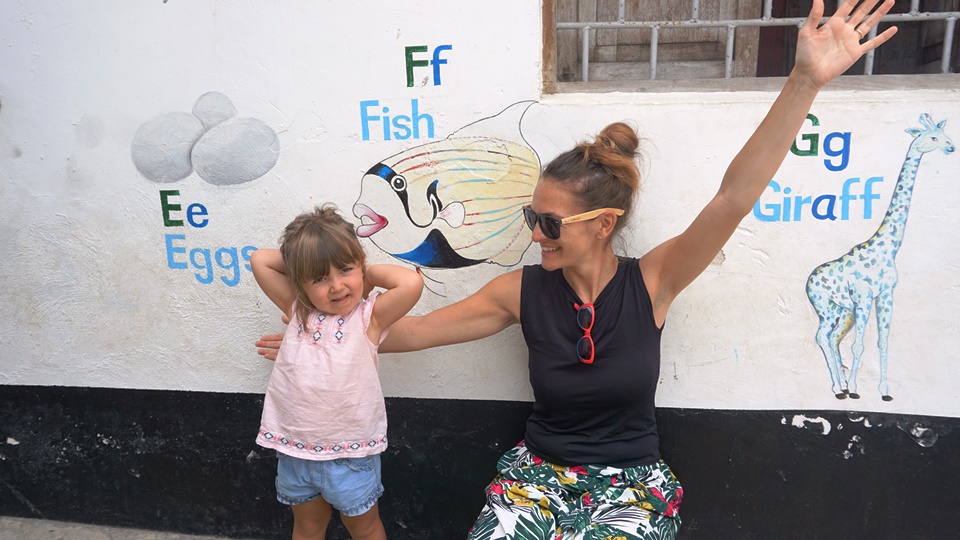
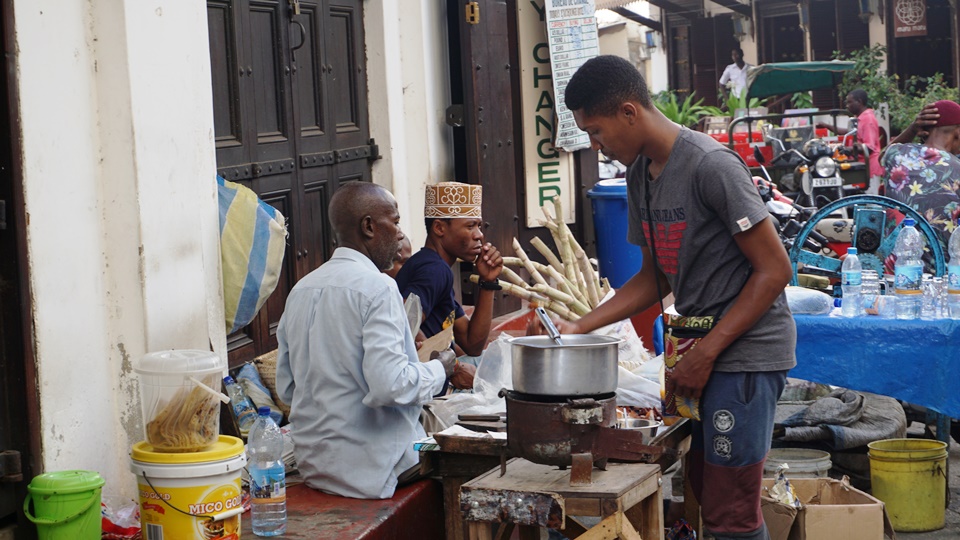
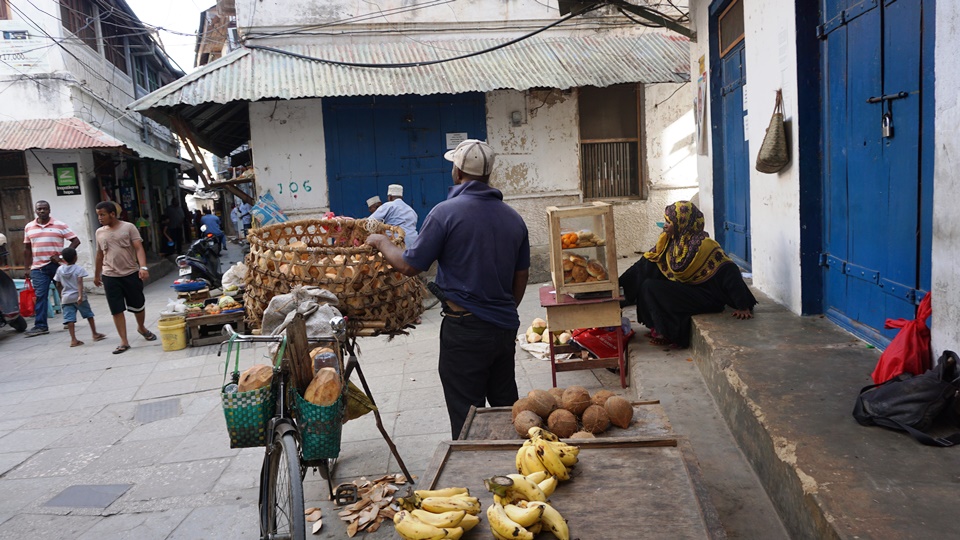
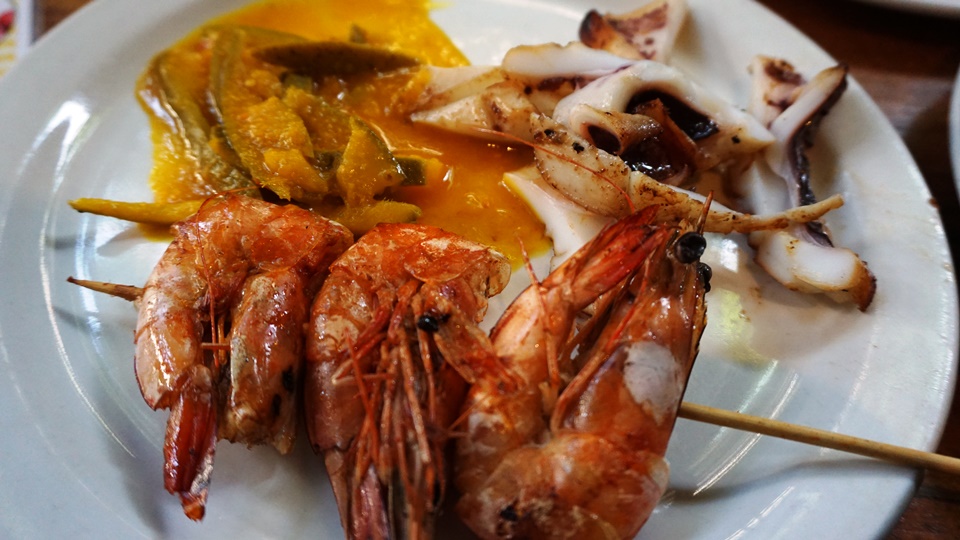
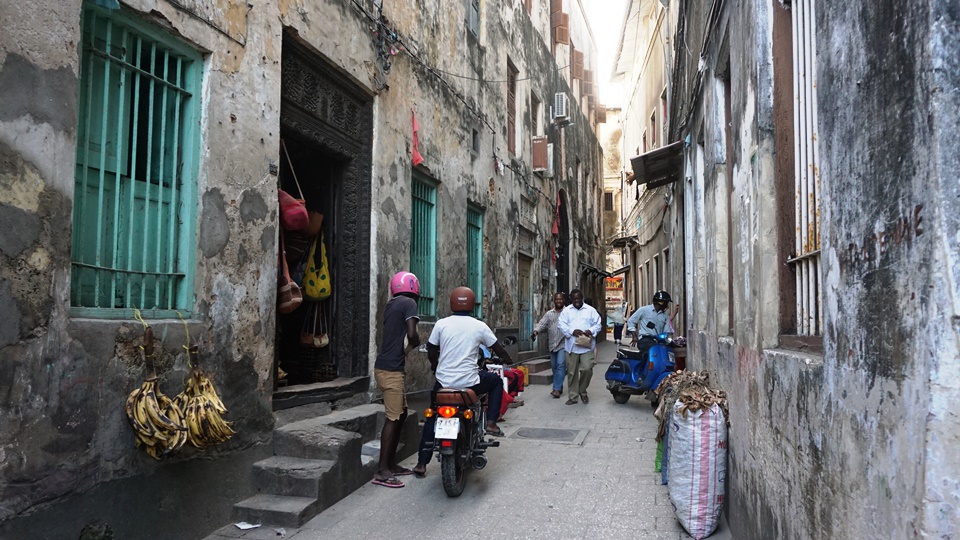
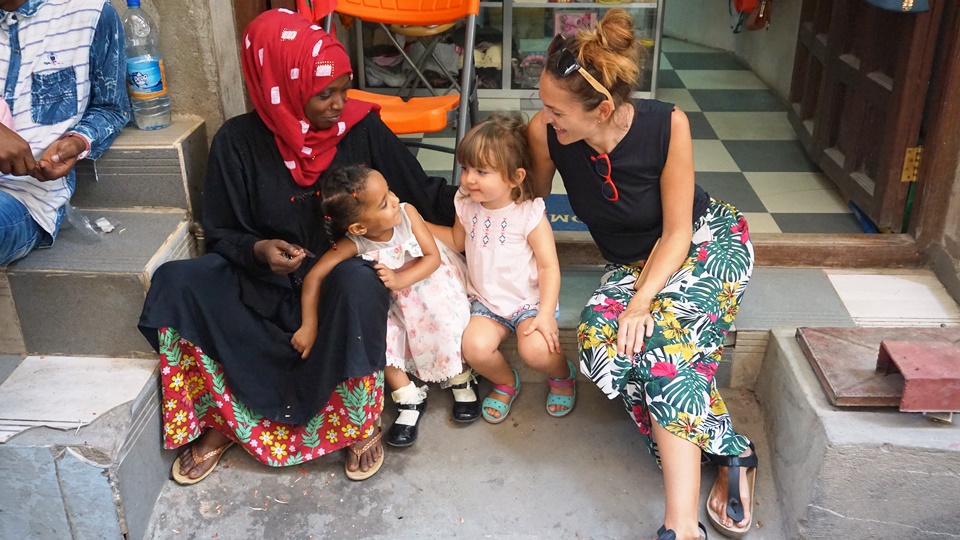
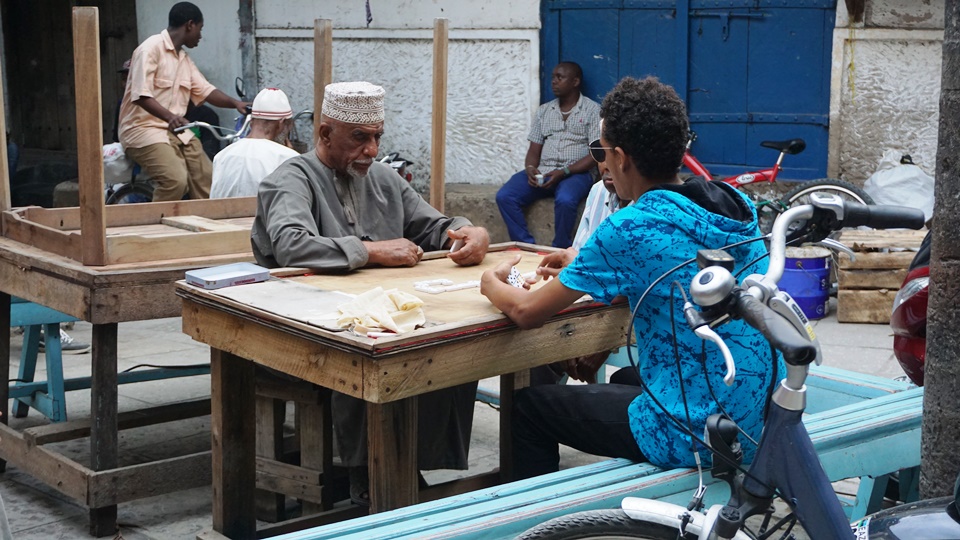
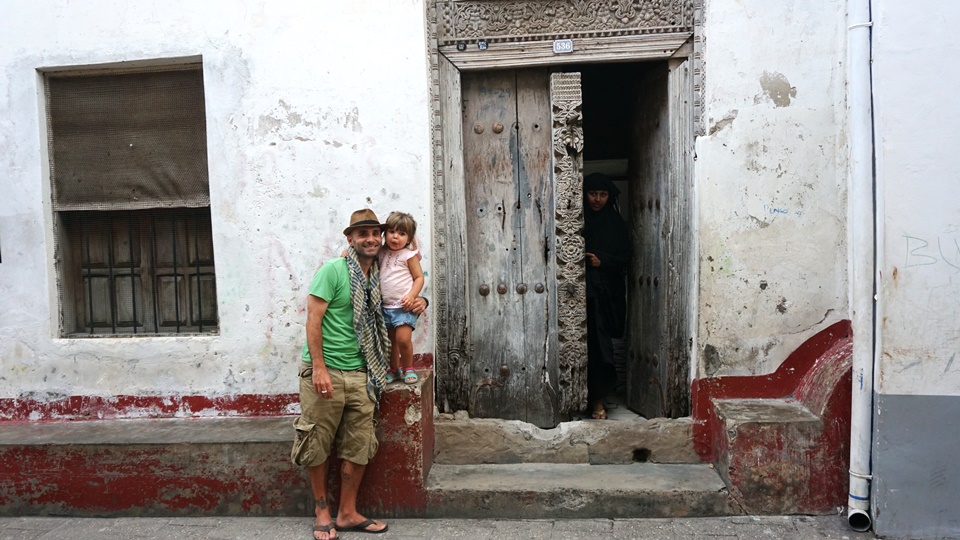
Stone Town is a cultural melting pot, a fruit salad of ancient and diverse influences: the Arab-style houses with their hidden courtyards set next to Indian-style buildings with finely furnished balconies decorated ...
Elegant entrance doors cleverly carved with centuries-old craftsmanship.
Stone Town has an ancient flavor, the flavor of many peoples who have come and gone over the years, of the many dominations, each of which has left its indelible mark, the smell of spices and fish, the taste of the sea, the merchants, the pirates, the artists that color its alleys, the many new visitors who willingly get lost in its intricate alleyways ...
Always pole pole and always hakuna matata
Zanzibar... Asante Sana
Error: No feed found.
Please go to the Instagram Feed settings page to create a feed.